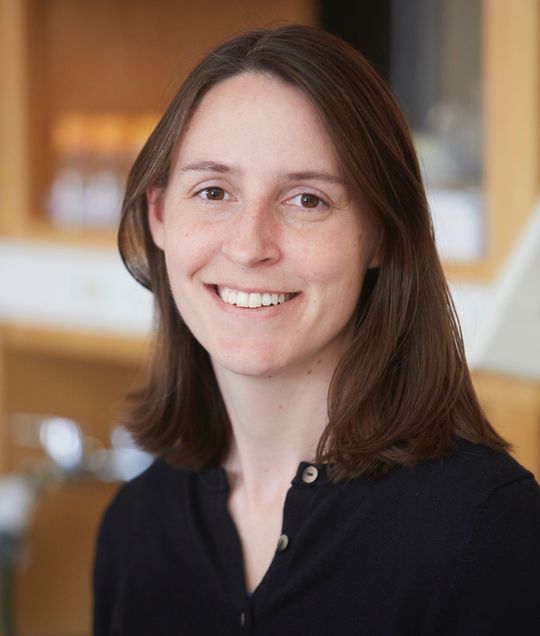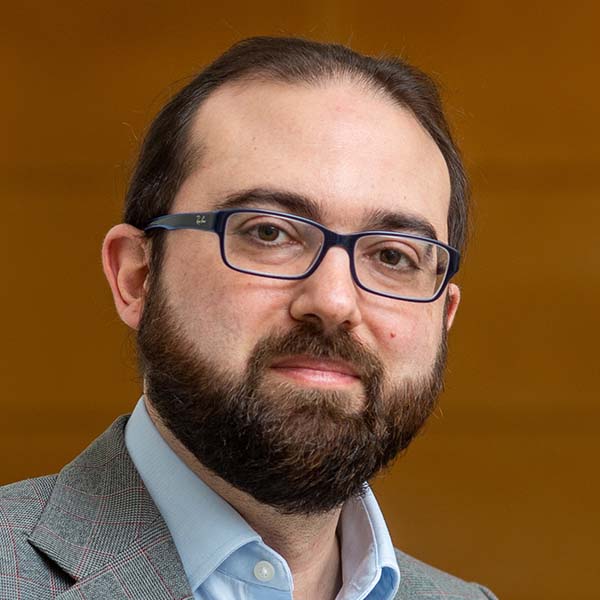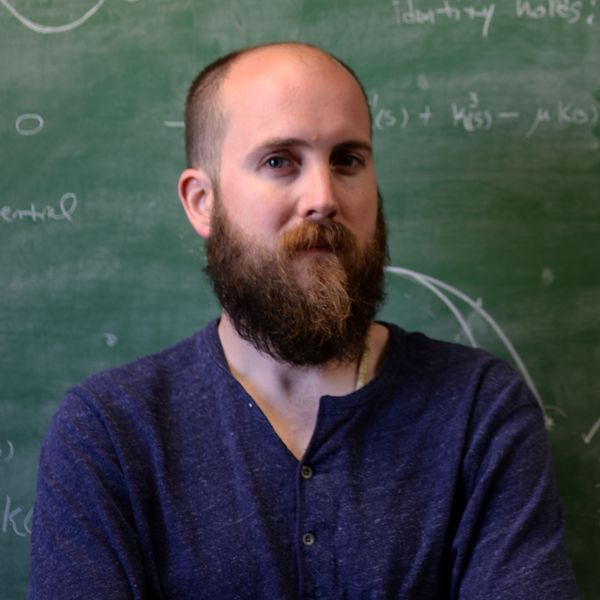Named the 2024 Distinguished Faculty Fellows
Dean ad interim Elise Morgan has announced that three mid-career faculty members have been named Distinguished Faculty Fellows.
 Associate Professor Mary Dunlop (BME) has been awarded the Dorf-Ebner Distinguished Faculty Fellowship. “Mary’s contributions to graduate and undergraduate education at Boston University and to the field of synthetic biology, as a researcher, mentor, teacher, and leader are exemplary,” Morgan wrote in an email to the ENG community.
Associate Professor Mary Dunlop (BME) has been awarded the Dorf-Ebner Distinguished Faculty Fellowship. “Mary’s contributions to graduate and undergraduate education at Boston University and to the field of synthetic biology, as a researcher, mentor, teacher, and leader are exemplary,” Morgan wrote in an email to the ENG community.
Spanning 58 peer-reviewed publications, Dunlop’s research combines synthetic biology, optogenetics, deep learning, feedback, and quantitative modeling to understand and control bacterial systems. Her pathbreaking discoveries include genes involved in transient antibiotic resistance and novel mechanisms that generate heterogeneity in gene expression. She has developed new optogenetic tools for single-cell studies in bacteria and engineered microbes to produce biologically derived replacements for many chemical products.
An AIMBE Fellow, Dunlop has received a DoE Early Career Award, NSF CAREER Award, and other national honors. At BU, where Dunlop is associate chair for BME graduate research programs, she has earned the ENG Teaching Excellence Award and the ENG Faculty Service Award.
“It’s an honor to be selected as the Dorf-Ebner Distinguished Faculty Fellow,” Dunlop says. “I am excited to use this opportunity to advance my group’s research in synthetic biology and feedback control. I also appreciate the award’s emphasis on teaching, mentorship, and leadership, and I am excited to continue my efforts in these areas to support the next generation of engineers.”
 Associate Professor Gianluca Stringhini (ECE) received the ENG Distinguished Faculty Fellowship in recognition of his work using data-driven approaches to better understand malicious activity online, aiming to develop better techniques to keep users safe. “Gianluca’s impact across research, teaching, and service at BU and to the profession is simply outstanding,” Morgan wrote.
Associate Professor Gianluca Stringhini (ECE) received the ENG Distinguished Faculty Fellowship in recognition of his work using data-driven approaches to better understand malicious activity online, aiming to develop better techniques to keep users safe. “Gianluca’s impact across research, teaching, and service at BU and to the profession is simply outstanding,” Morgan wrote.
Focusing on malware, online fraud, spam, and other digital harms, Stringhini has helped take down online criminal operations. Combining techniques from signal processing, image processing, machine learning, and computational social science, he has developed novel mitigation techniques and leading methods of measuring and modeling disinformation and other online problems that affect society.
Appearing in more than 150 peer-reviewed publications, Stringhini’s research has been featured in the BBC, the New York Times, and other major news outlets. He has received several NSF grants, including an NSF CAREER Award. At BU, where he is also affiliated with the Computing & Data Sciences program, Stringhini has earned ENG’s ECE Teaching Award.
“I’m very honored to receive this fellowship,” says Stringhini. “I know that the selection was quite competitive, and I’m grateful to the College for it. I will use the funds to support my research on developing mitigations for socio-technical cybersecurity problems.”
 Associate Professor Douglas Holmes (ME, MSE) has earned the Theo de Winter Distinguished Faculty Fellowship. “Doug’s contributions in research, teaching, advising, mentoring, and service have been extraordinary,” wrote Morgan.
Associate Professor Douglas Holmes (ME, MSE) has earned the Theo de Winter Distinguished Faculty Fellowship. “Doug’s contributions in research, teaching, advising, mentoring, and service have been extraordinary,” wrote Morgan.
Holmes’ research seeks to understand and control how structures undergo large shape changes. His work largely focuses on slender structures and soft materials—from airplane wings and transatlantic cables to blood vessels and human hair—which commonly exhibit large deformations. He has made critical insights into how to morph two-dimensional shapes into three-dimensional shells, and developed soft material grippers and actuators inspired by kirigami.
The recipient of multiple DARPA grants and an NSF CAREER Award, Holmes has published more than 47 peer-reviewed publications, garnering around 2,500 citations. He has served as ENG’s interim associate dean for outreach and diversity, among other service roles at BU.
“It’s particularly special to be recognized with the de Winter award because it is meant to highlight contributions to both teaching and research, and I’ve always seen these as two sides of the same coin,” says Holmes. “Efforts to improve teaching have always improved my research communication, and bringing ideas from the lab to the classroom has always sparked interest and curiosity amongst my students.”
